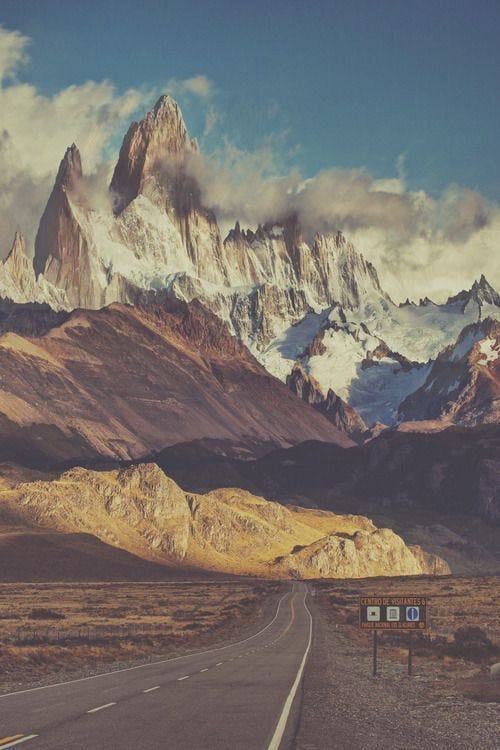
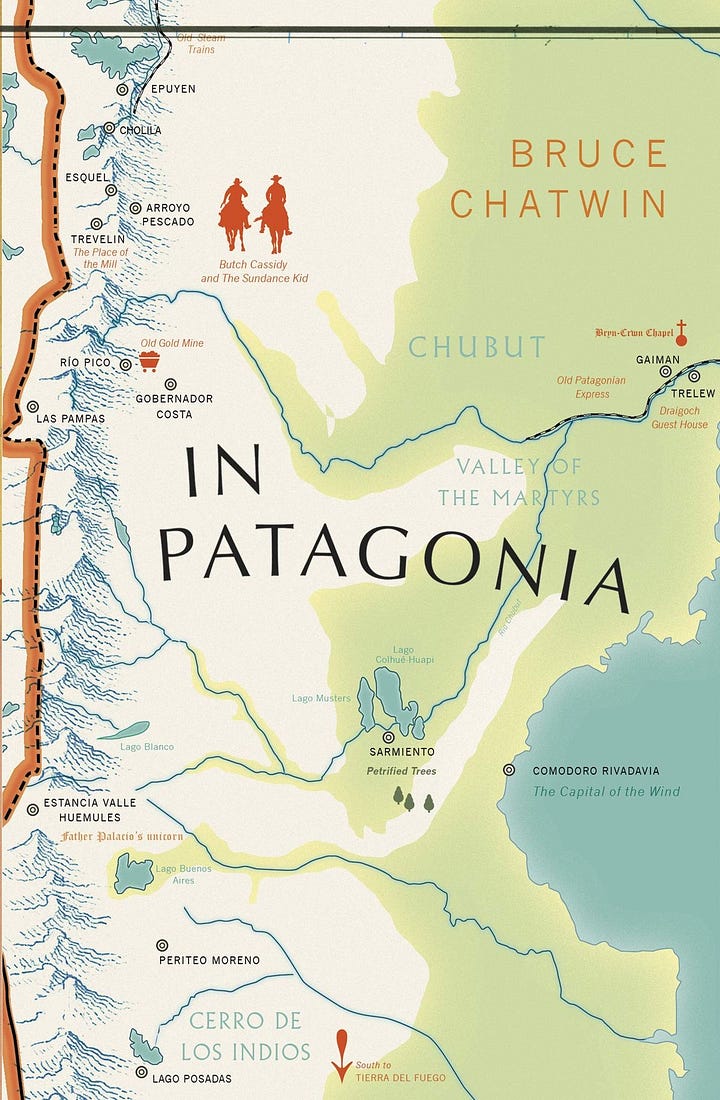
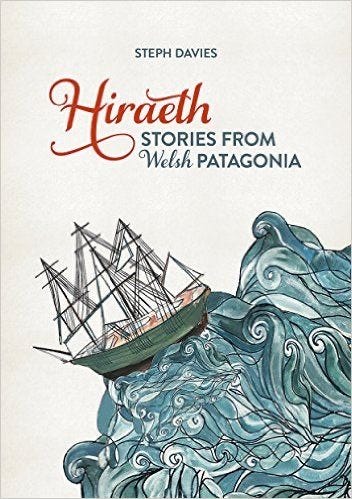
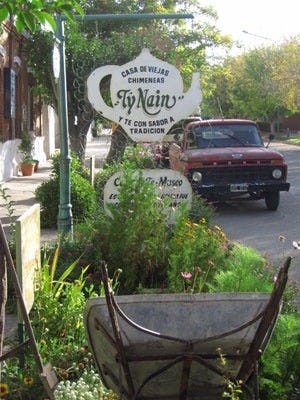
Dear friend
How are you? And what do you know about Patagonia?
Did you know that in 1865, a group of Welsh settlers did something remarkable. They packed up their lives, their language and their longing and sailed to Patagonia, carrying with them two of the most untranslatable words in the Welsh laguage; hiraeth and cynefin.
Hiraeth - that deep longing for a homeland that may no longer exist, or perhaps never existed at all - was what drove them from Wales in the first place. You can read more about this story here - A small slice of Wales in South America. However, it wasn’t the romantic wanderlust as I had imagined. These settlers were fleeing something, the slow erosion of their language and culture in their own homeland.
Rev. Michael D Jones, one of the movement’s leaders, believed that Welsh immigrants to America were losing their Welsh identity too quickly, absorbed into English speaking communities. He dreamed of a place where Welsh could not survive but thrive, where children could grow up speaking their mother tongue without shame or compromise.
As I’ve been taking my time researching these stories, I tried to imagine the weight of that decision. To leave Wales because staying meant losing what made them Welsh. To carry their hiraeth - their longing for home - across an ocean in hopes of creating a new cynefin, a new place of belonging, in the windswept plains of Patagonia. I barely travel two hours to find my cynefin, I literally drive down the M4 from Cardiff head towards Pembrokeshire and soon enough I’m in my happy place.
What the settlers built in what appears to be quite a harsh, yet beautiful landscape, was nothing short of extraordinary. They called it Y Wladfa - The Colony - and for decades, it was more Welsh than Wales itself. Welsh was the language of schools, chapels and local government. Children grew up bilingual in Welsh and Spanish, but Welsh came first.
They weren’t just establishing a settlement; they were transplanting an entire emotional landscape. The concepts of hiraeth and cynefin traveled with them, living in their daily conversations, which shaped how they understood their relationship to this new land.
Isn’t this remarkable? Think about what that means: a group of people so determined to preserve their sense of belonging that they were willing to recreate it from nothing, in a place that couldn’t have been more different from the green valleys and rugged coastline of Wales.
So apparently today around 5000 people in Patagonia still speak Welsh, and Patagonian Welsh carries words and phrases that have disappeared from Wales itself. I remember as a child listening to my grandparents create their own ‘Wenglish’ a mix of Welsh and English words thinking that young ears wouldn’t be able to understand, what they were most likely gossiping about.
There is something so moving about linguistic survival. Where the language spoken weren’t just words that made the journey, but entire ways of understanding home, belonging and longing. As I think about my ongoing journey to understanding what home means, I’m struck by how the Welsh settlers of Patagonia were grappling with the same fundamental questions 160 years ago.
Perhaps what moves me most about the Welsh in Patagonia is that they kept the words. Hiraeth and cynefin didn’t get lost in translation or abandoned for more practical vocabulary. They remained essential, necessary and alive! This tells me something really important about the power of having language for the feelings I carry. The Welsh settlers needed these words because they were living these experiences intensely. The longing, the searching, the recognition of true belonging.
Today, as millions of us navigate own own versions of displacement and searching, maybe we need these Welsh words more than ever. Maybe I need to remember that my journey from hiraeth to cynefin is ancient, honoured and entirely possible.
Right, maybe I need to press pause on this topic for a while, what do you think? Have I’ve gone a little OTT in writing a few essays about cynefin? Or are you as curious as I am about the longing for home and a sense of belonging? Answers on a postcard please.
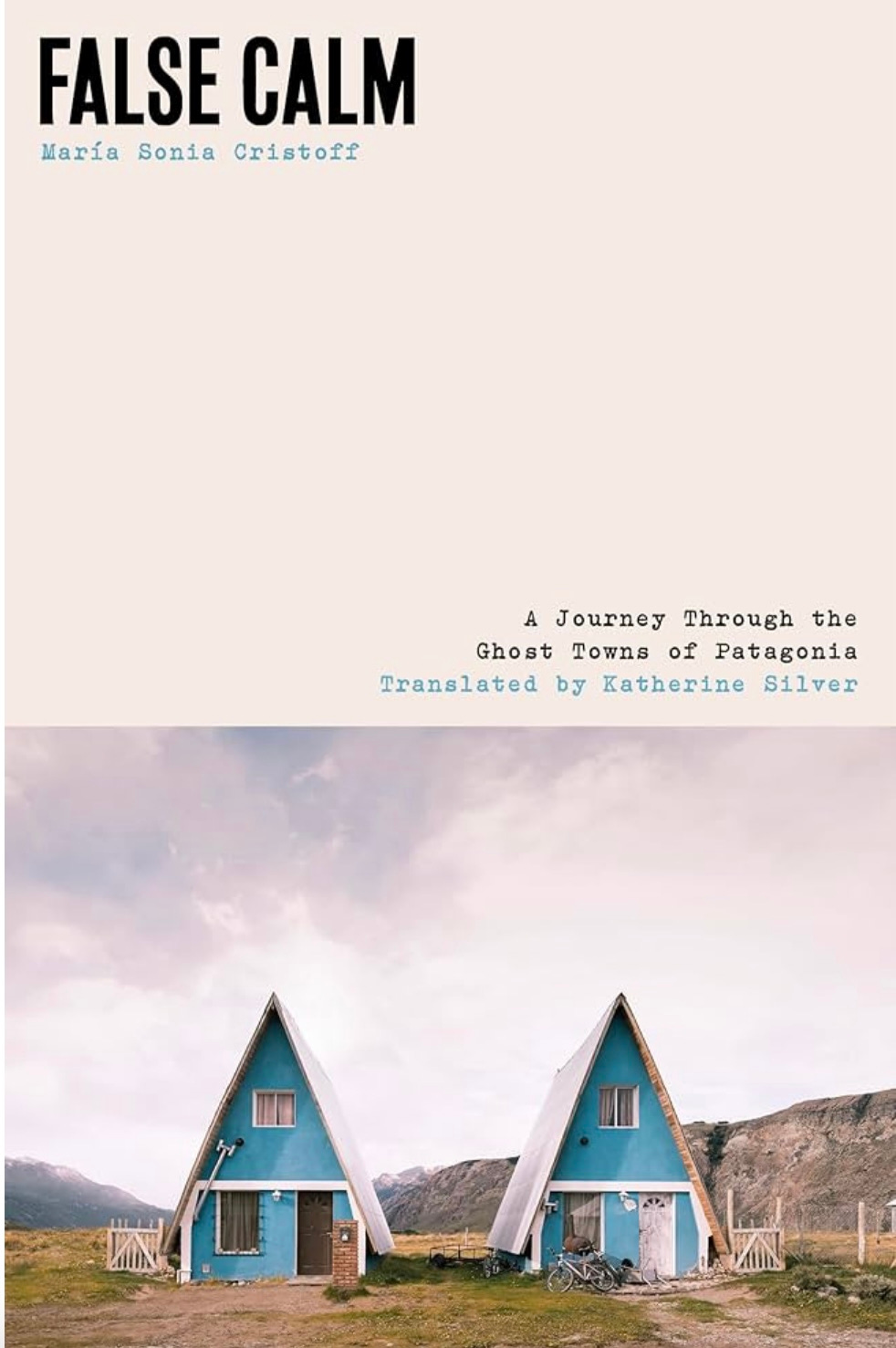
In the meantime, I’m excited to discover that there is a new book coming out soon, called False Calm written by Maria Sonia Cristoff and translated by Katherine Silver. It documents the ghost towns of Patagonia left behind by the oil boom. I imagine the book being filled with pages upon pages of stories from local characters, assuming some of them were Welsh speakers. I so wish I could have been there with Maria while she travelled through these ghost towns. I wonder how many of them were descendants of the Welsh settlers, and how many of them having to redefine home. Maybe one day I’ll visit Patagonia. Ooh and if you’re from or living in Patagonia, and have a Substack, please, please get in touch, as I’d love to connect with you.
Until the next time
Take care and stay safe xx

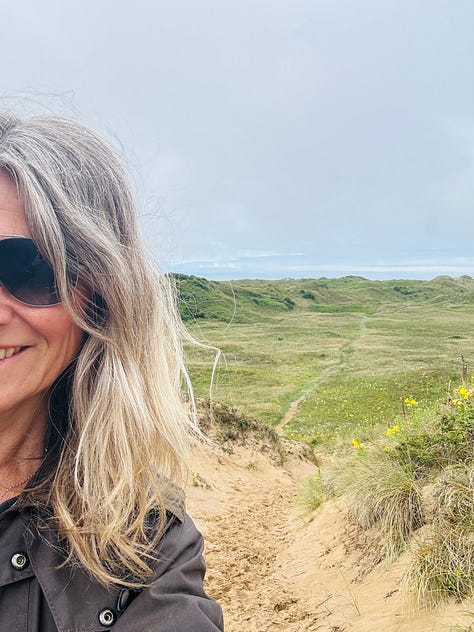

If you’d like more information about the retreats and workshops I’m hosting this year and in 2026, or you’d like to join the waiting list, please don’t hesitate to email me at hello@easeretreats.com
Every Thursday at 1pm via Zoom - “Journal with Ease Club” with Tanya Lynch
25th July 2025 - “Drive Through Journalling by the Sea” with Tanya Lynch
19th August 2025 - “Rage on a Page” Online Journalling Series with Tanya Lynch
26th September 2025 - “Blueprint Your Season” Day Retreat with Tommy Ludgate
2nd - 5th October 2025 - “Rest + Read” Weekend Retreat with Lucy Pearson
17th - 20th October 2025 - “Digital Detox” Weekend Retreat with Tanya Lynch
April 2026 - "Substack with Ease" Day Retreat with Claire Venus
May 2026 - “Creative Unblocking” Weekend Retreat with Emma Gannon
12th June 2026 - “Finding Your Voice” Day Retreat with Laura Pashby
PS. Bring your unfinished stories.
Bring your wild dreams.
Bring yourself.
Because here ‘with ease’, you are always welcome.





Tanya, this piece resonated so deeply with me, especially your exploration of hiraeth. That feeling of longing for a home that might not exist, or a past that’s gone, is something I’ve wrestled with more than once. It’s funny how we think we’re so modern in our quests for belonging, but as you beautifully put it, these are ancient, honored journeys.
I've found my own cynefin in unexpected places over the years, often when I least expected it. It wasn't always a geographical location; sometimes it was a community of like-minded souls, or even a moment of profound personal clarity. Your writing really highlights that the search for belonging isn't just about finding a physical spot on a map, but about cultivating an inner landscape that feels like home, no matter where you are.